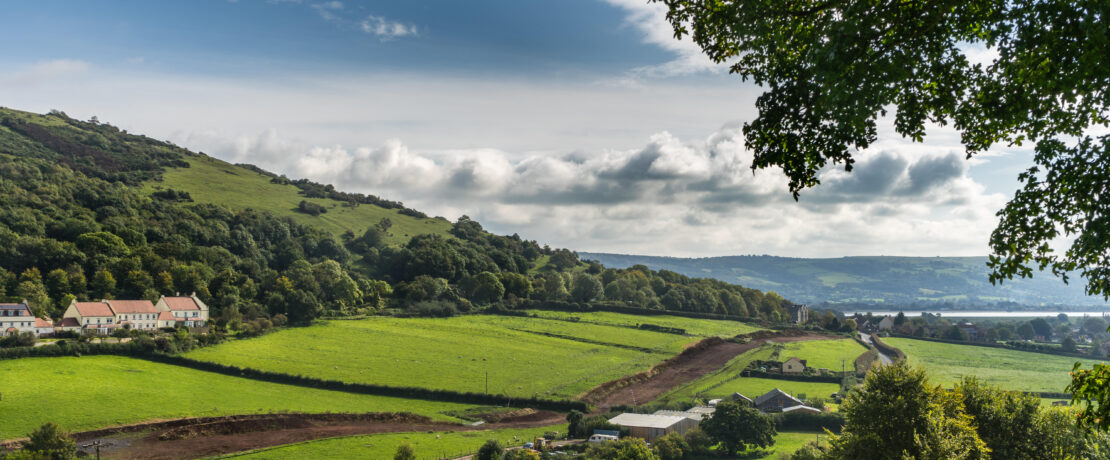Eyes on the Bill: lessons from a year and a half of legislative campaigning
The Levelling Up and Regeneration Act has shown us that Bill work is hard work. In this reflective piece, CPRE’s Campaigns Officer Mark Robinson explains how it’s all been worth it.
Over the last year and a half, we’ve been working both on our own and in collaboration to influence the Government’s Levelling Up and Regeneration Bill (LURB), which has now become an Act of Parliament.
It’s been a long slog, a steep learning curve, and a big headache at times. Getting your head around hundreds of pages of legislation and amendments-within-amendments-within-amendments hasn’t been easy.
But this piece aims to tell you one thing above anything – it’s been worth it.
Whether you’re interested in planning legislation or not, the areas under its remit are pretty limitless – from the climate emergency to the housing crisis. Our experience has shown the importance of holding the government’s feet to the fire whenever key legislation is being developed. You can’t look the other way for a moment – influencing legislation is critical to building a planning system fit for people, nature and the climate.
One Bill, a suite of issues
To understand just how wide the scope of this legislation was, let’s rewind to July 2020 when the government had just published its Planning White Paper. Within it were a host of radical proposals that essentially deregulated the planning system. It was an attack on local democracy and the environment, and along with others, we spent the best part of the subsequent year mobilising against it.
Several joint letters, petitions, stinging media attacks, and one award later, the government finally caved in, and the Levelling Up and Regeneration Bill – published in May 2022 – was its answer. A Bill ostensibly about the government’s aims to level up the country but, above anything, it was about – you guessed it – planning.
The LURB contained a range of damaging provisions, including replacing a huge portion of existing environmental law with a new regime that may be far less rigorous than current standards. Net zero was virtually absent, alongside an evident lack of changes to address the escalating affordable housing crisis.
Of biggest concern to CPRE was the introduction of National Development Management Policies (NDMPs). These are a new type of planning policies that could be set, modified and enforced at the behest of the Secretary of State and – it seemed at the time – no one else.
NDMPs: the Long and Winding Road
Having a national streamlined policy for a range of key planning issues, from Green Belt to social housing provision, seemed like a potentially good idea. But it was completely wrong and undemocratic that according to the draft legislation, the Secretary of State could create and modify these policies without any public or parliamentary input. And it was a major risk that whoever happened to be the Secretary of State at any given time could set or change the planning direction of a whole area without any checks or balances.
Together with our partners, we formed the Better Planning Coalition in May 2022, representing 34 organisations across the environment, housing, planning, heritage and transport sectors with one common goal: a planning system fit for climate, nature and people. Splitting into working groups to influence the range of areas in the Bill – from climate to housing – we worked in the local democracy group to challenge the government on NDMPs.
Through a tremendous effort of back and forth – Commons and Committee, Commons and Lords – we were able to carry an amendment calling for public and parliamentary scrutiny of NDMPs almost to the last minute. But it wasn’t to be.
Despite major efforts of CPRE supporters and local campaigners across the country, less than a week before the Bill became an Act, the government managed to dissuade the Lords from voting for parliamentary scrutiny of NDMPs.
It was a huge disappointment, but we had some significant wins:
- NDMPs, unlike before, will require full public consultation unless in ‘exceptional circumstances’
- Verbal assurances (known as ‘legitimate expectations’) that these exceptional circumstances really would be exceptional, like in the case of a pandemic. These reassurances can be used to hold ministers to account should they abuse these powers in future.
- Ministers will need to take climate change into account when preparing NDMPs
It may seem small, but legislation lasts for a long time. Any changes made can be seismic, and thanks to collaborative efforts across the sector and on the ground, alongside the tireless work of pro-democracy parliamentarians, we now have a mechanism to feed into the creation of a new suite of national planning policies and hold ministers to account if they try and bypass this democratic process. It wasn’t everything we wanted by a long shot, but it’s something to build on when previously we had nothing.
Other losses, other wins
As mentioned before, NDMPs weren’t the only concern we had in the Bill. Splitting the work between us, the Better Planning Coalition drafted a range of amendments for Peers to table in the House of Lords that would improve the Bill or remove its most damaging provisions, continually refining them throughout the process. Some of these amendments met their fate far too early, others lasted their way into the final text.
Climate change
A comprehensive amendment was drafted that would impose a duty on planning decision-takers to have special regard to climate change when considering their verdicts. Given the severity of the climate emergency, you’d have hoped this wouldn’t have been controversial. And yet, the government defeated this amendment when it came to a final vote in the House of Lords, claiming that the duty would leave decision-makers open to ‘legal challenges’.
This was an absolute cop-out – last year’s approval of the UK’s first deep coal mine in 30 years (set to create more emissions than all of the currently open UK coal mines combined) shows that the planning system is clearly not delivering for the climate and is in dire need of an update.
Health and wellbeing
An impressive coalition of organisations united in collaboration with Lord Crisp to table an amendment that ensured all new developments follow a set of ‘healthy homes principles’, but the government simply wouldn’t have it, making up yet another poor excuse that such principles were already covered in existing or upcoming legislation and guidance. One need only look to the state of many housing developments to see that current legislation absolutely isn’t working!
A final, compromise amendment simply calling on planning decision-takers to ‘have regard’ to health and wellbeing also fell through because of a lack of support in the Lords. This particularly sad ending is a damning indictment of a government that refuses to walk the walk when it comes to building beautiful, for the sake of everyone in the community.
It’s fair to say though that this isn’t the end of the road for either the climate or health and wellbeing work. Both campaigns now have their sights on upcoming opportunities to build these desperately needed principles into the planning system, ensuring the work done up to now won’t have been in vain.
Nature’s recovery
Onto the good news. Through the work of Wildlife and Countryside Link and the Better Planning Coalition, campaigners were able to secure several wins through the Bill, including:
- A strengthening of the duty on public bodies to protect our most precious landscapes
- A bolstering of the role of ‘Local Nature Recovery Strategies’ in the planning system
- Fighting back against the government’s attempts to scrap rules on ‘nutrient neutrality’
- A lot of this work will now need cementing and implementing, but some solid foundations have been laid in law thanks to some top-class collaboration.
Social housing
Perhaps the most progress of all was made on social housing, where work spearheaded by Shelter, both inside and outside the Better Planning coalition and supported along the way by CPRE, managed to secure a reform of ‘hope value’. This will allow local authorities to purchase land for social housing and other critical infrastructure at much cheaper prices.
In addition, CPRE’s long-running campaign for better regulation of second homes – which are strangling rural communities in holiday hotspots – made a huge step forward. In the final Act, a registration scheme was introduced for second homes and a new provision for councils to charge a council tax premium of up to 100% on second homes.
Learnings and lessons
All of this shows that, above all, sustained campaigning on legislation can have tangible outcomes that last for decades to come, even if you don’t achieve everything you set out for. A few other key learnings come to mind:
- Work in coalition, wherever you can. Legislation is intimidating enough, let alone if you’re approaching it on your own or from the view of just one organisation. By forming the Better Planning Coalition, and working in partnership with other fighting forces like Wildlife and Countryside Link and the RTPI, we were able to spread out our expertise and efforts, share vital information in real-time, build collective relationships with key parliamentarians, and have a real impact on the final Bill.
- Keep your eyes on the Bill. Excuse the pun, but the pace of change was erratic throughout the entire 18-month passage of the Levelling Up and Regeneration Act, and we needed to be constantly vigilant. This was especially the case when votes or hearings of the Bill were announced within a week’s notice, and we had to prepare briefings, reach out to our allies in the House of Commons and the House of Lords, and mobilise our supporters to get the turnout and vote in our favour.It was a lot of work, but the pressure evidently felt from government ministers during considerations of the Bill – particularly in its latter stages – and the concessions given, made it definitely worth it.
- The work never stops. With consultations galore to come, a revised version of the National Planning Policy Framework (NPPF), and an election on the horizon, it’s become evident that there’ll be no point at which we can draw a line in the sand on this campaign. It’s just simply been transposed into different battlegrounds, and that’s where we’ll be turning our attention to next.
Besides, the fight to ensure our planning system is fit for the 21st century, tackling the nature and climate emergencies and building a thriving countryside for all, never really ends.
But now is at least a good chance to pause and reflect. Who knows, the next time a big piece of legislation comes out, we might even be more ready to take it on. I can say with certainty that it’ll be worth it.









